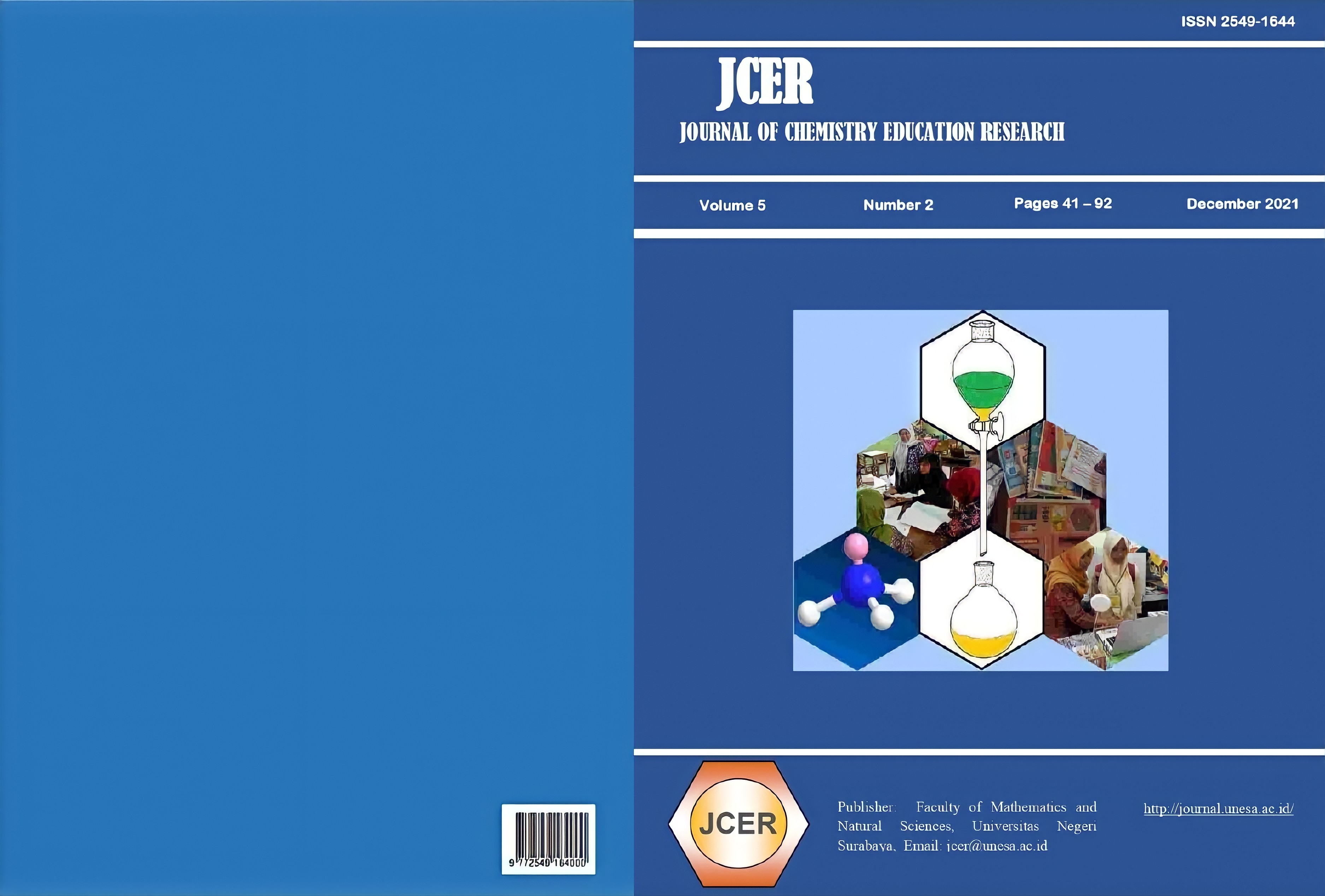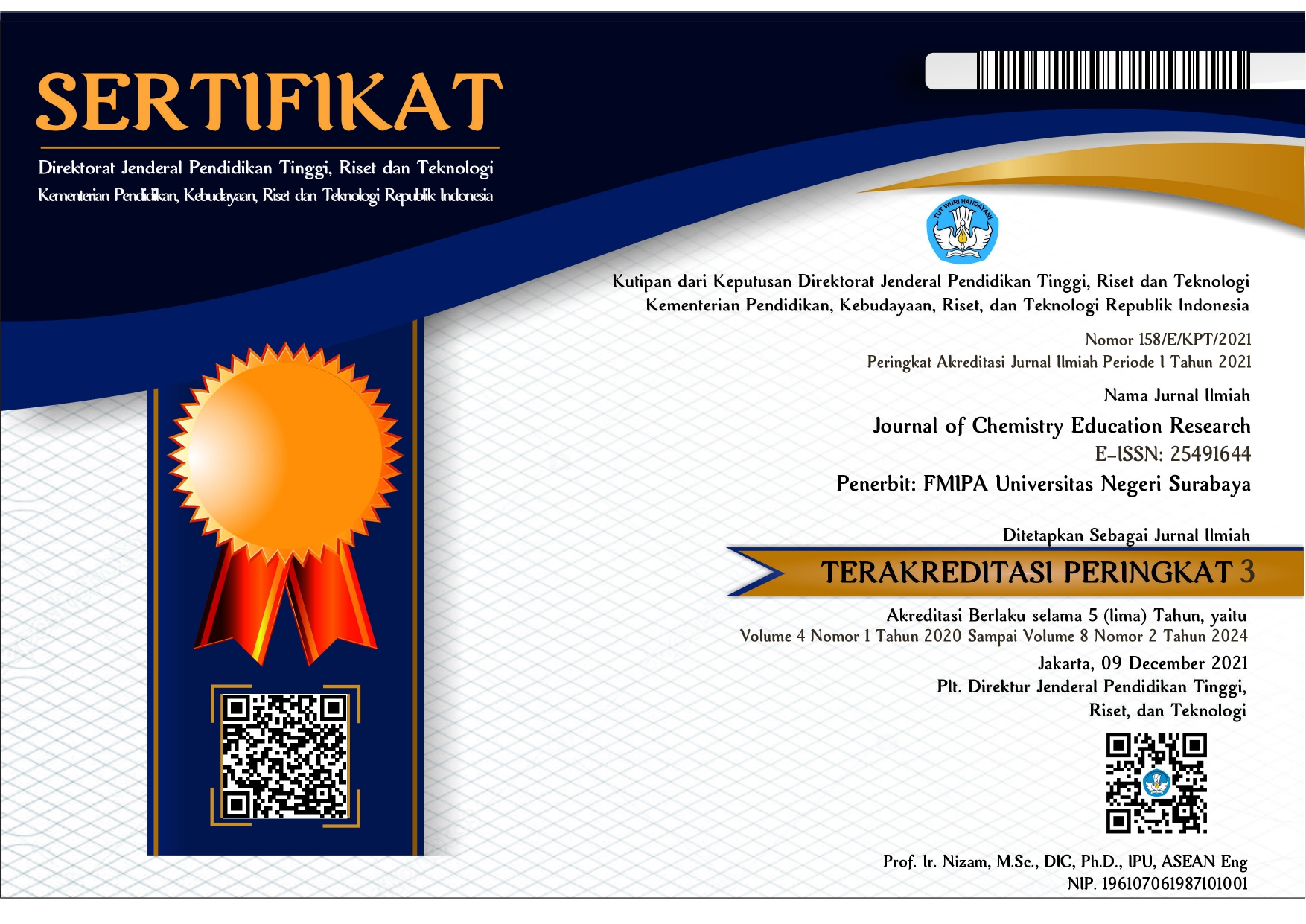THE EFFECT OF GUIDED INQUIRY MODEL ON HIGHER ORDER THINKING SKILLS REVIEWED FROM CHEMICAL LITERACY
DOI:
https://doi.org/10.26740/jcer.v5n2.p70-76Keywords:
Inquiry, HOTS, Chemical Equilibrium, LiteracyAbstract
Abstract. The change in the educational paradigm in the 21st century requires students to have good basic knowledge and understanding to develop Higher Order Thinking Skills (HOTS). Chemical equilibrium is an abstract material and complex, so it requires good thinking skills to understand the concepts. This Study aims to determine the effect of the application of guided inquiry models on HOTS in chemical equilibrium. This research uses Pre-Experimental Design with One Shot Case Study model with 25 students of Billfath University as subjects. The data were collected using the HOTS test instrument in the form of 15 multiple choice questions. Hypothesis testing used the Independent Sample T-test (non-parametric). The results showed (1) the high-level learning outcomes of students with high initial abilities were better than students with low initial abilities, (2) there was a significant effect of applying the model Guided inquiry learning towards student high-level learning outcomes.
References
Nurina, D. L., & Retnawati, H. 2015. Keefektifan Pembelajaran Menggunakan Pendekatan Problem Posing dan Pendekatan Open-Ended Ditinjau Dari HOTS. PYTHAGORAS: Jurnal Pendidikan Matematika, 10(2), 129.
Fahmina, S. S., Indriyanti, N. Y., Setyowati, W. A. E., Masykuri, M., & Yamtinah, S. 2019. Dimension of Chemical Literacy and its Influence in Chemistry Learning. Journal of Physics: Conference Series, 1233(1).
Andriani, Y., Mulyani, S., & Wiji, W. 2021. Misconceptions and troublesome knowledge on chemical equilibrium. Journal of Physics: Conference Series, 1806(1).
Maikristina, N., Dasna, I. W., & Sulistina, O. 2013. The influence of using guided inquiry learning model on the learning outcomes and science process skills of the eleventh grade students of Natural Sciences specialization class at SMAN 3 Malang on the topic of salt hydrolysis. Jurnal Online Universitas Negeri Malang
Slavin R. E. 2011. Psikologi Pendidikan: Teori dan Praktik Edisi Kesembilan (Jakarta: PT. Indeks).
Sen, S., & Oskay, O. O. 2016. The Effects of 5E Inquiry Learning Activities on Achievement and Attitude toward Chemistry. Journal of Education and Learning, 6(1), 1.
Downloads
Published
Issue
Section
License
Copyright (c) 2021 JCER (Journal of Chemistry Education Research)

This work is licensed under a Creative Commons Attribution-NonCommercial 4.0 International License.
 Abstract views: 534
,
Abstract views: 534
, PDF Downloads: 421
PDF Downloads: 421



